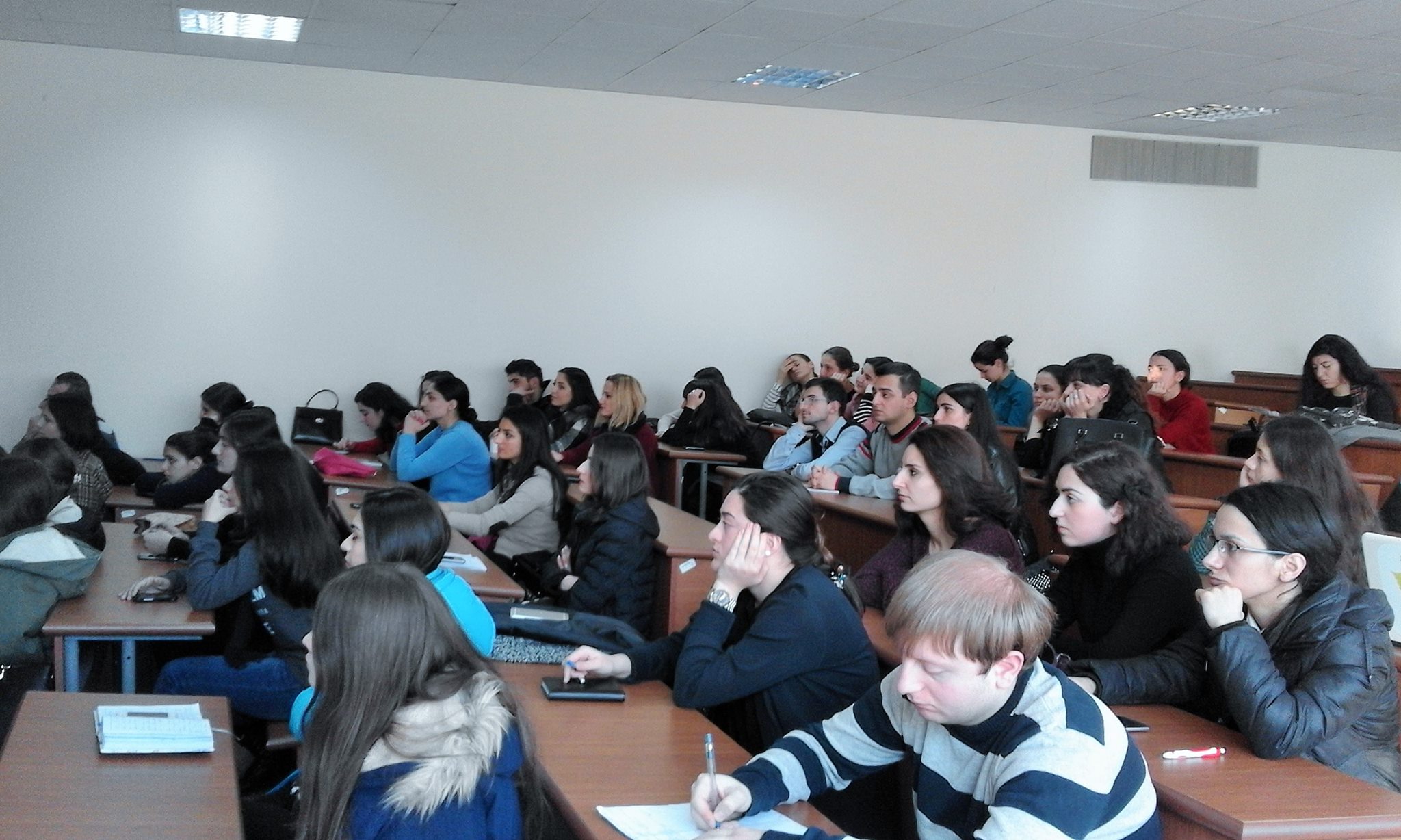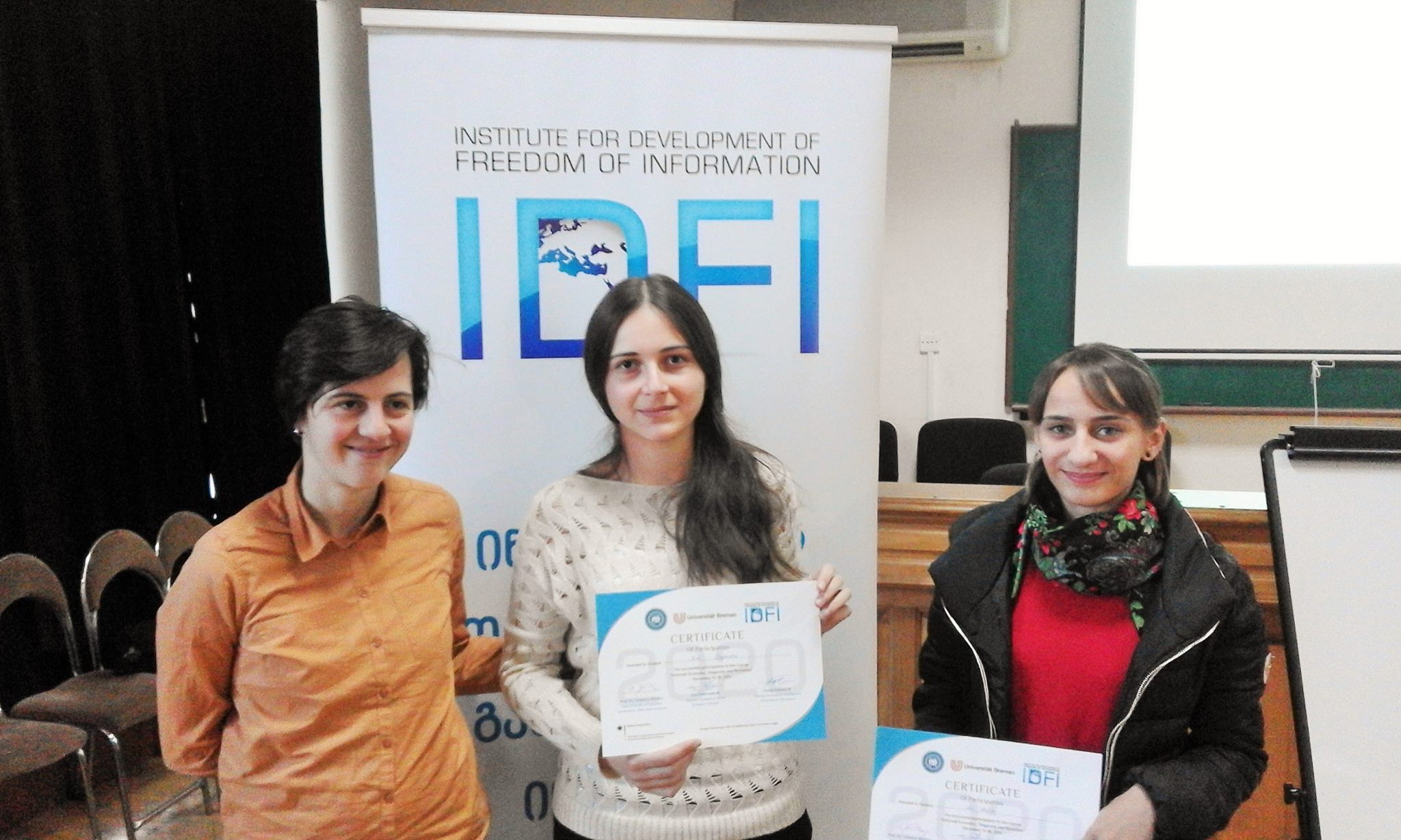


 On December 15-18, the Institute for Development of Freedom of Information (IDFI) organized series of lectures “Informal Economy: Diagnosis and Remedies” at Ivane Javakhishvili Tbilisi State University, headed by Lela Rekhviashvili – Researcher of Central European University (CEU, Budapest). The course was held within the framework of the project “Strategic Plan Georgia 2020 – Strengthening Public Involvement”. The project is implemented by IDFI in cooperation with University of Bremen and with the financial support of Federal Foreign Office of Germany.
On December 15-18, the Institute for Development of Freedom of Information (IDFI) organized series of lectures “Informal Economy: Diagnosis and Remedies” at Ivane Javakhishvili Tbilisi State University, headed by Lela Rekhviashvili – Researcher of Central European University (CEU, Budapest). The course was held within the framework of the project “Strategic Plan Georgia 2020 – Strengthening Public Involvement”. The project is implemented by IDFI in cooperation with University of Bremen and with the financial support of Federal Foreign Office of Germany.
On the first day, Lela Rekhviashvili discussed the concept of informal economy. With the students, she discussed the differences between formal and informal economies and elaborated on the different forms of informal economy. Socially acceptable and unacceptable behavior and practices in Georgia, their respective role in the development of informal economy were also discussed on the first day of the lectures. During the first lecture the students had the possibility to discuss the factors contributing to the establishment of informal economy.
On the second day of the lecturing course, Lela Rekhviashvili talked about the theories around the issues of informal economy. The students discussed the significance of theoretical knowledge in perceiving empirical reality. The doctoral candidate of the Central European University talked about the Dualist, Institutionalist, Structuralist and Post-Structuralist perspectives of informal economy and discussed their main features. Students had the opportunity to engage in the discussions about the precision of the theories, their characteristics and the solutions to the problems identified during the discussion.
On the third day of the lecturing course, Lela Rekhviashvili discussed the main features of informal economy based on the case-study of Georgia. Various formes of informal economy were identified, which emerged in Georgia after the collapse of the Soviet Union. With the students, Lela Rekhviashvili talked about the attempts of the Georgian Government to reduce the share of informal economy in the state economy. Specific reforms and decisions were discussed – deregulation, reduction of taxes and simplifying tax code, privatization, liberalization, attracting foreign direct investments (exempting from taxes for certain period of time), institutional changes, reducing corruption and civil service reform.
On the last day of the lecturing course, Rekhviashvili discussed her research on street vendors in Georgia. She talked about the causes of this practice of and its discussed major stimulating factors. Rekhviashvili also discussed the government’s policy toward traders and assessed the consequences of implementing these policies. Based on the result analysis, the students had the opportunity to assess the extent to which the theories and explanations of informal economy correspond to the experience and the existing situation in Georgia.
After four-day lecturing course, the participant students were awarded with joint certificates from IDFI, University of Bremen and Tbilisi State University. Furthermore, the participant students have the opportunity to write a blog article around the theme of the course and to win Kindle and scientific literature translated to Georgian. The prizes will be awarded to the authors of the best works.